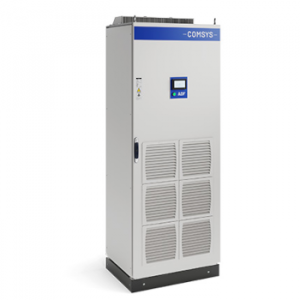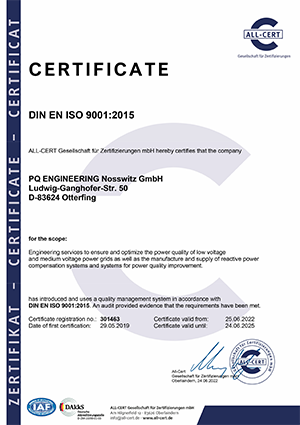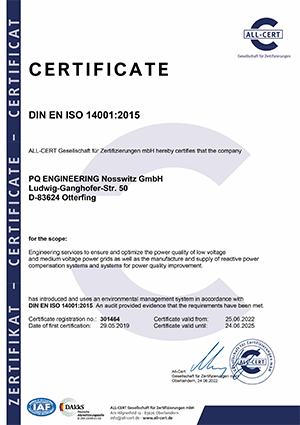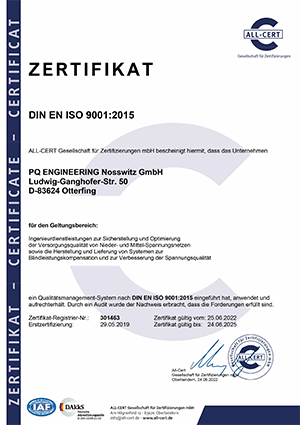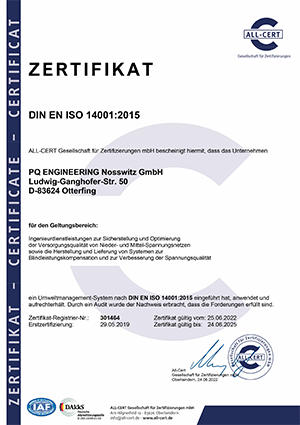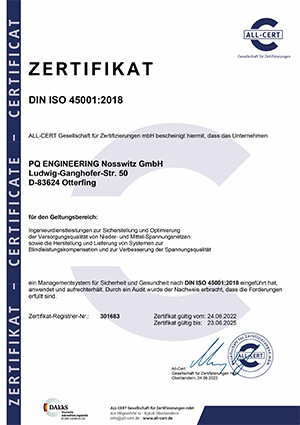PQE pHF – Passive filter
High reliability, low losses
Simple solutions for classic power quality problems
Our passive filter program

In many cases, passive filters are an economical solution for reducing grid disturbances such as:
- Commutations
- Harmonics
- High currents in the neutral conductor
- Interference from ripple control signals
- High frequency disturbances
Low losses and high reliability characterise passive harmonic filters from PQ ENGINEERING.

In many cases, passive filters are an economical solution for reducing grid disturbances such as:
- Commutations
- Harmonics
- High currents in the neutral conductor
- Interference from ripple control signals
- High frequency disturbances
Low losses and high reliability characterise passive harmonic filters from PQ ENGINEERING.
Protect your power supply and operational processes from critical grid perturbations with passive filters from PQ ENGINEERING:
Advantages of passive filters
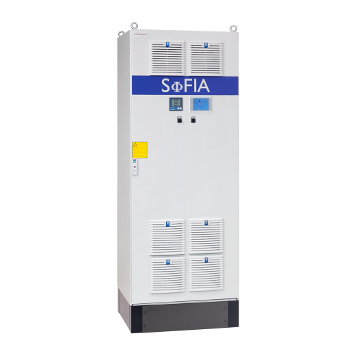

SOFIA harmonic filter
Voltage-controlled harmonic filters with intelligent matching (SOFIA) revolutionize the use of passive filters:
No measurement is required for filter sizing. Approximately 30 % lower losses than conventional passive filters and approximately 60 % lower losses than active filters make Sofia the most economical harmonic filter. Overloading of the filter is excluded by the control concept.
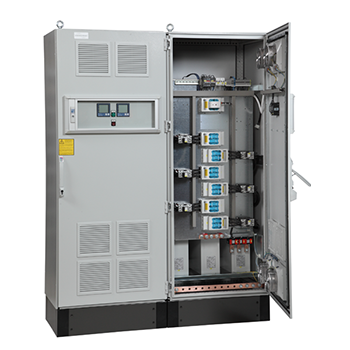

Filter circuit CLMX-FC
The passive filter is used to reduce harmonic levels in highly loaded grids where there is a simultaneous need for compensation.
The robust cabinet design and high efficiency at lower cost make the system particularly suitable for industrial applications.
The specification of the system is usually determined on the basis of a power quality analysis. Hybrid filters, i.e. combinations with active filters, combine the optimum cost and solution.
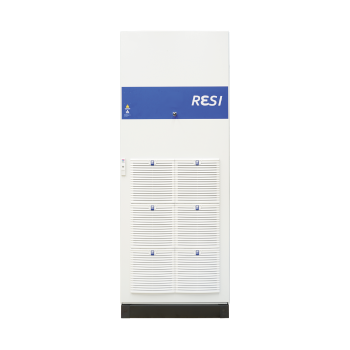

Resonance damping filter RESI
RESI filters are used when disturbances with higher frequencies than the classical harmonics occur. Mains resonances cannot be eliminated with pure LC suction circuits, but are only shifted in frequency. Resonances can be effectively damped by introducing a damping resistor. RESI systems are available as modules, stand-alone units and cabinet systems. They are also excellent for damping the effects of clock frequencies and commutation dips of high power inverters.

